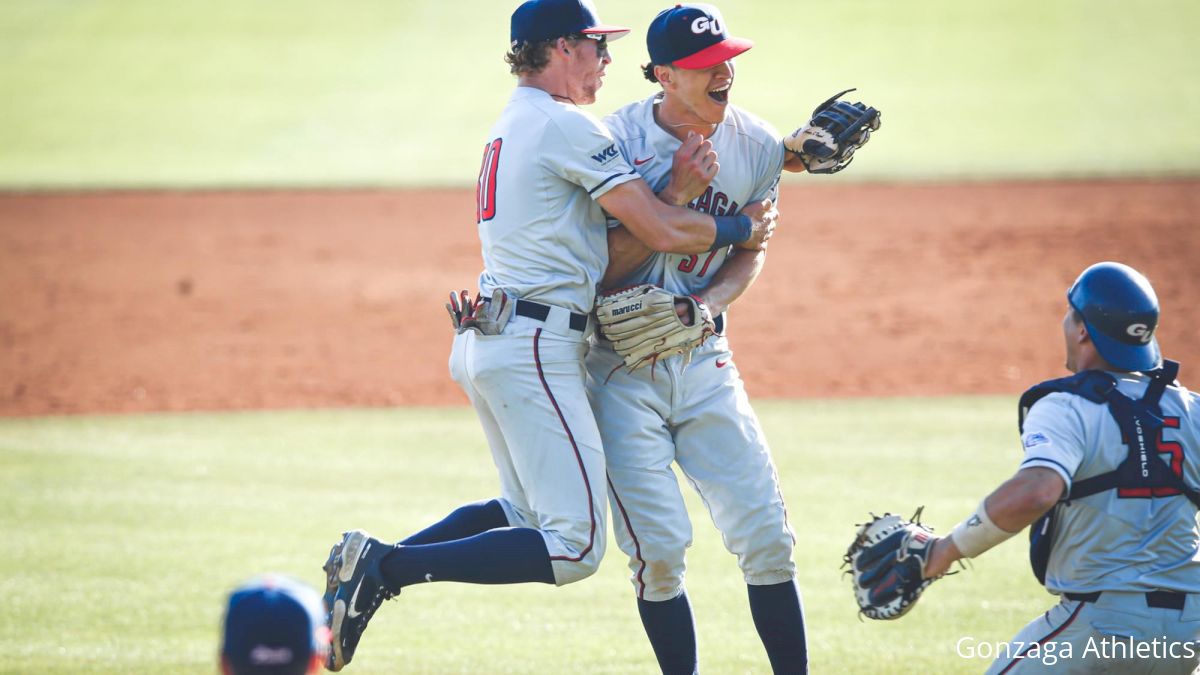Gonzaga Preview: Bulldogs Look To Keep On Rolling
Gonzaga Preview: Bulldogs Look To Keep On Rolling
With some good pieces and elite fielding, Gonzaga looks to followup a solid 2021 season with a trip to the regionals.

Gonzaga may have a reputation as a basketball school, but keep an eye on baseball once the hoops slows down.
After all, the baseball program is on a pretty significant run itself.
Evoking memories of the 10-year period from 1971 to 1981 when the Zags made seven NCAA Tournament appearances, Gonzaga has made it to a regional four times since 2009, including in two of the last three tournaments played.
But alas, much like its men’s basketball team for years came just short of the Final Four, Gonzaga baseball has come up just short of getting out of districts/regionals every time it’s earned a berth in the NCAA tourney.
Here’s the lowdown on the defending West Coast Conference champions lineup in 2022, as they hope to get back to competing against the best in college baseball:
Hitting
It was all about contact, contact, contact for the Bulldogs last year. Even without an extraordinary amount of power (33 home runs, .400 slugging percentage), Gonzaga still tied for the WCC lead with 330 runs and finished second in the league with a .276 average. The Zags’ runs often came piece by piece rather than all at once, which created jams for opposing pitchers and a lot of offense-friendly scenarios.
That’s where returning hitters like sophomore catcher Stephen Lund capitalized, who was on-pace for being one of three Gonzaga players to bat over .300 before a season-ending injury 29 games in. He should be one of the main pieces of the Bulldogs' lineup, with infielders Brett Harris (.355) and Ernie Yake (.333) having both left the program in the offseason. Lund also brings some juice to his bat, having tied the team lead with six home runs pre-injury.
Watch for senior outfielder/first baseman Shea Kramer for break-out potential in new scenery after transferring from Utah, where he started 115 of 132 games and hit at least 20 RBI in each of his three full seasons.
Pitching
Alek Jacob had a year of historic proportions in Spokane last season, winning the WCC’s Pitcher of the Year award with a 2.52 ERA and 112 strikeouts, while throwing the school’s first no-hitter since 1990 by blanking Pepperdine in April. But right-hander Gabriel Hughes could become a worthy follower in Jacob’s footsteps. The 6-foot-4 sophomore from Idaho was awesome in his first year with the Zags, being named both to the WCC’s All-Freshman and Second Teams while playing second fiddle to Jacob, making 10 starts and throwing a 3.23 ERA with 67 strikeouts.
Right-hander Alec Gomez’s deployment in the rotation, meanwhile, could be an interesting choice for Gonzaga’s staff, as he had bright spots as a reliever in a pandemic-shortened 2020 but struggled at times as a starter in 2021. Sophomore right-hander Brody Jessee, an All-WCC Honorable Mention pick, carved out a nice niche in the rotation with a team-leading four saves and 33 strikeouts in 25 innings.
X-Factor
If there was one thing that was almost always certain when you played Gonzaga last season, it was that if you hit a ball near a player, you’re probably not getting on base. The Bulldogs as a unit had one of the smoothest gloves in all of college baseball last season, finishing seventh in the country as a team with a .981 fielding percentage and overall committing just 36 errors in 53 games.
Harris was named the WCC’s Defensive Player of the Year for it, and the Zags as a whole had three players a year ago finish with a perfect fielding percentage (min. 30 putouts). It probably helps that Gonzaga didn’t play in a spectacular league last year (San Diego was the only other team that finished with an overall winning record), but good fielding is an underrated skill that can come back to haunt programs that lack it. More importantly, Gonzaga knows how to take advantage of bad defense, as well: in the Eugene Regional of the NCAA Tournament last year, it forced three errors from LSU in each team’s postseason opener, with the Bulldogs using them to their advantage in an eventual 3-0 win.